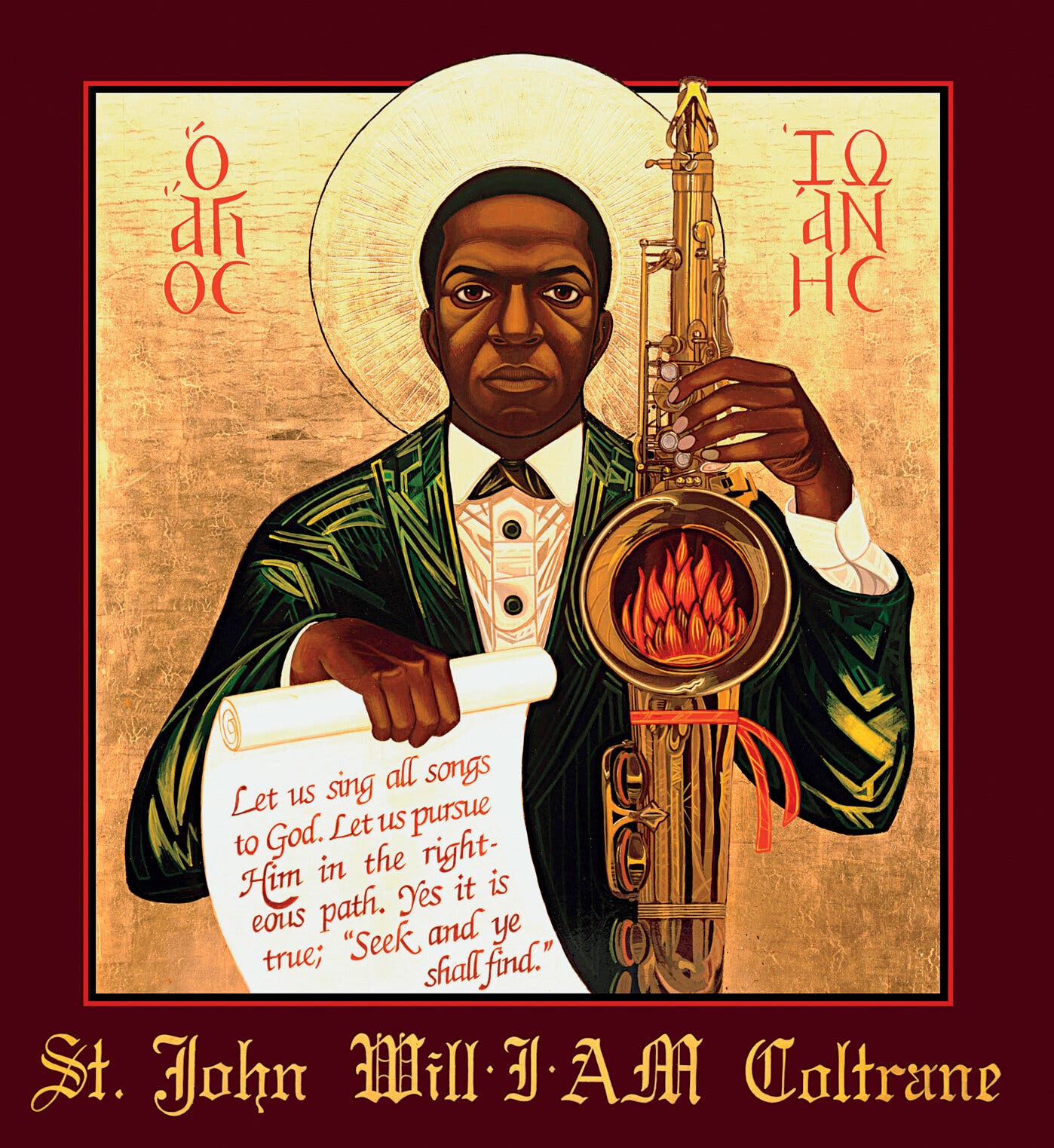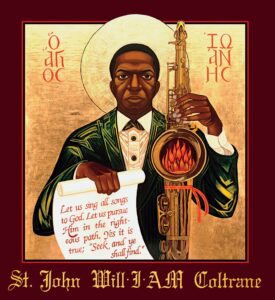I’d propose that religions are human constructs, perhaps based on a transcendental spiritual experience or experiences that one person had and tries to share to some degree with others. Maybe they offer direct access to that actual experience or maybe they share insights derived from it. Afterwards, over time, devotees looking to preserve, build upon and promulgate the founder’s vision may create elaborate theologies, hierarchical systems and institutional structures to that end. These codify and synthesize a philosophical stance, cosmology and ethical code. I’d suggest that spiritually oriented organization that does all that functions as a legitimate religion per se whether or not any of the facts surrounding its founder’s historical circumstances can be substantiated.
T: The New York Times Style Magazine recently published an in-depth piece on the St. John Coltrane Church in San Francisco. While I’d heard of this church years ago, I really wasn’t clear on how seriously the folks involved took it and how religious it actually was. This article cleared it up for me beautifully. Personally, I’d consider this an entirely legitimate religious institution. Here’s a couple excerpts:
“There have been countless attempts to capture the power of Coltrane’s music — his unmatched ear for both melody and chaos, his seemingly endless ability to find new sounds in traditional chords, the complex interplay between him and his band (which, in addition to Coltrane on saxophone, included Jimmy Garrison on bass, Elvin Jones on drums and McCoy Tyner on piano) — but, to King, ‘It was as though he was speaking in tongues and there was fire coming from heaven — a sound baptism,’ he says. ‘That began the evolutionary, transitional process of us becoming truly born-again believers in that anointed sound that leaped down from the tone of heaven out of the very mind of God, stepped from the very wall of creation and took on a gob of flesh, and we beheld his beauty as one that was called John.’…
“Out of the storefront in the Western Addition, King was preaching that Coltrane was Christ incarnate, and structuring a weekly meeting around his music, especially ‘A Love Supreme,’ a suite in four parts — ‘Acknowledgement,’ ‘Resolution,’ ‘Pursuance,’ ‘Psalm’ — that has the loose structure of a prayer service. And King, in turn, realized that the Panthers’ Marxist ideology (“Dialectical materialism,” as Marina says with a small sigh) had more in common with the Christian faith than he might have expected…
“it brought the Kings to the attention of leaders in the African Orthodox Church, which was founded in New York City in the early 20th century by defectors from the Episcopalian faith. George Duncan Hinkson, a bishop in the A.O.C., told the Kings that Coltrane couldn’t be their god, but he could be their patron saint. (When asked what he wanted to be in 10 years in a 1966 interview, Coltrane, whose father and grandfather were Methodist ministers, famously replied, ‘A saint.’) ‘So I said,’ King tells me, ‘Well, we ain’t got no problem with that,’ and in 1982, the A.O.C. officially canonized Coltrane. The Kings began studying orthodoxy, commissioning icon paintings in the Byzantine style, and changed the congregation’s name to the Saint John Coltrane African Orthodox Church.”
Y’all should really read the whole magilla:
https://www.nytimes.com/2021/12/03/t-magazine/john-coltrane-church.html.


